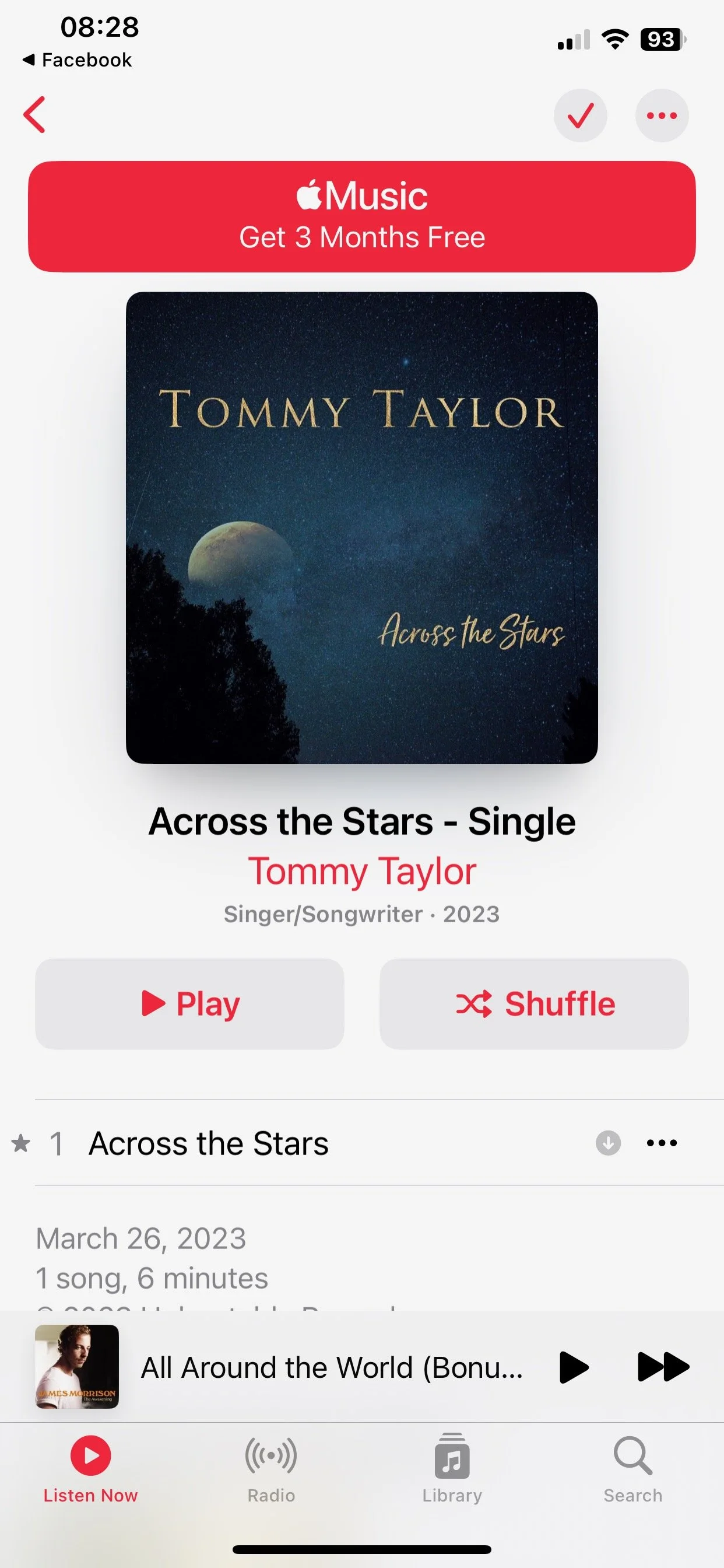Fair Versus Exploitive Music Marketing
A friend of mine just released a tune this week and I thought I’d buy it. Yes, buy it. Streaming his song wouldn’t even compensate him with a cup of coffee for his effort. So, I went to my iTunes app and purchased it. After doing so, I thought I’d share the link to the iTunes page for his song to encourage my friends to have a listen as well. I put a link to his tune, Across the Stars, on Facebook. After doing so, I tested the link and was greeted with an Apple Music subscription offer instead of an opportunity to buy it. What? I took the link from my iTunes app so other people could also buy the tune but there is no obvious way to buy it using the link. Streaming is great for convenience, but I want to pay for that convenience separately from compensating a content creator for their work. What is Apple doing?
I tried clicking the ‘three dot’ icon, expecting to see an option to buy the tune. There was none. It is clear that Apple, although still providing listeners with an opportunity to purchase through the iTunes app, is now actively discouraging them from doing so when they visit Apple Music. Discouraging prospective buyers by making it more difficult to buy than subscribe, is the definition of exploitive music marketing. Obviously, it is much easier and more profitable for Apple to simply market subscriptions to a streaming service than maintain an ever expanding database of music purchases. Rather than discouraging purchases, ethically speaking, Apple should put its weight behind Fair Trade Music Distribution and offer a NFTiPoD instead. By doing that, Apple would not lose customers for streaming, because NFTiPoDs don’t compete with streaming but instead would stimulate a healthy music industry.
The Fair Trade Music Distribution model doesn’t replace streaming, it leverages the streaming ecosystem to provide a direct payment method for musicians, by their fans and at the same time, gives fans the ability to stream music, for which they have a NFTiPoD license, on any streaming service for which they have a subscription. In addition, it relieves streaming providers like Apple from the burden of keeping an ownership database, by transferring all of their existing purchases to NFTiPoD licenses that are available and verifiable, on a public blockchain. Fair Trade Music Distribution is a win-win for streaming providers.
Apple needs to stop claiming that it supports ethical music when Fair Trade Music Distribution is no longer a part of its business model.
